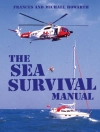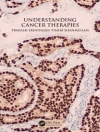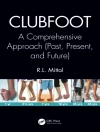This book offers up-to-date information on the recording and analysis of respiratory sounds that will assist in clinical routine. The opening sections deliver basic knowledge on aspects such as the physics of sound and sound transmission in the body, a clear understanding of which is key to good clinical practice. Current techniques of breath sound analysis are described, and the diagnostic impact of advances in the processing of lung sound signals is carefully explained. With the aid of audio files that are available online, detailed guidance is then provided on differentiation of normal and abnormal breath sounds and identification of the various sounds, including crackles, wheezes, other lung sounds, cough sounds, and sounds of extrathoracic origin. The book is of high educational value and represents an excellent learning tool at pre- and postgraduate levels. It will also appeal to researchers as it provides comprehensive summaries of knowledge in particular research fields. The editors bring high-level expertise to the subject, including membership of the European Respiratory Society Task Force on the standardization of categories and nomenclature for breath sounds.
Tabla de materias
1 Introduction.- Part I: General Considerations.- 1 Historic review.- 2 Clinical usefulness of breath sounds.- 3 Nomenclature.- Part II: Sound recording, analysis, and perception. 4 Physics of sounds.- 5 Sound transmission through the human body.- 6 Breath sound recording.- 7 Current techniques for breath sound analysis.- Part III. Respiratory sounds. 8 Normal versus adventitious sounds.- 9 Crackles.- 10 Wheeze.- 11 Other lung sounds.- 12 Cough sound.- 13 Extrathoracic origin sounds.- Part IV. Where Are We Going? 14 Future prospectes for respiratory sound research.- 15 Towards a unified nomenclature.- 16 Epilogue.
Sobre el autor
Kostas N. Priftis, MD is Associate Professor in Paediatric Pulmonology, at the Children’s Respiratory and Allergy Unit, 3rd Department of Paediatrics, National & Kapodistrian University of Athens Medical School, Greece. He graduated from the Medical School of the Aristotle University of Thessaloniki (1976) and defended his Ph D thesis at the University of Athens (1982). Completed his residency training in Paediatrics at the University of Patras (1985) and a research fellowship in Paediatric Respiratory Medicine at the University of Nottingham Medical School, UK (1989). His research focuses on childhood asthma, allergy and chronic endobronchial infections. He has authored more than 160 scientific publications in peer reviewed international journals (h-index = 38, Google Scholar), edited 5 books or special issues.
Leontios J. Hadjileontiadis received the Diploma (1989) and Ph D (1997) degrees in Electrical and Computer Engineering (1989) from the Aristotle University of Thessaloni150 papers in peer reviewed international conference proceedings, 6 books, 2 books edited, 24 book chapters and 3 patents [h-index=34 (Google scholar), 28 (Scopus)]. He has a vast experience in project management and has been awarded, amongst other awards, as innovative researcher and champion faculty from Microsoft, USA. He is a Senior Member of IEEE.
Mark Everard is the Mc Cusker Foundation Professor of Paediatric Respiratory Medicine at the University of Western Australia and Princess Margaret Hospital for Children, Perth. His research includes the spectrum from bench top to bedside with particular interests in ‘difficult asthma’; the interaction of the host and micro-organisms including respiratory microbiome, persistent bacterial bronchitis, viral-bacterial interaction, the respiratory syncytial virus and viral lower respiratory tract infections; aerosol therapy and the impact of patient behaviour on clinical outcomes.












